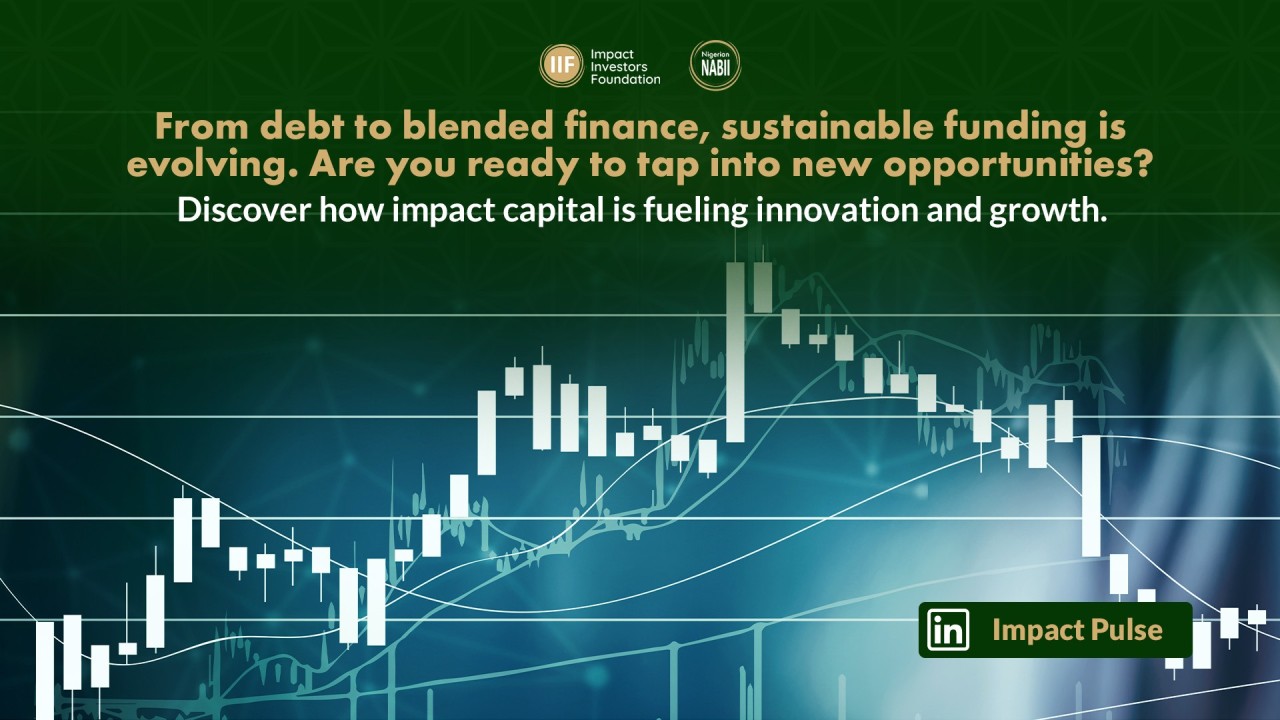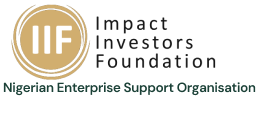Exploring Impact Capital As A Funding Option for SMEs

There are challenges in accessing capital from financial service providers experienced by Small and Medium Enterprises (SMEs) due to barriers like collateral and lengthy documentation requirements in compliance with banking regulations. It is therefore not a surprise that the financing gap in Nigeria for Small and Medium Enterprises stands at $158.1B, with unmet loan estimates put at over $32B. Even when small businesses scale through the difficult loan eligibility processes, the interest rate repayments are often too high to sustain their enterprises. Impact Investment is becoming a more appealing funding option due to these obstacles in taking traditional capital.

The Global Impact Investing Network (GIIN) defines impact investing as “investments made to generate positive, measurable social and environmental impact alongside a financial return.” These investments happen when funds are deliberately channeled into enterprises that pursue a triple bottom line – the propensity to generate financial, social and environmental impact. The landscape for Impact investing is growing with the Business Research Company reporting that the global impact investing market grew from $420.91 billion in 2022 to $495.82 billion in 2023, representing a compound annual growth rate (CAGR) of 17.8%. There is therefore a shift from private charitable giving to investing in impact financial instruments such as debt, private equity, public equity, and equity-like debt, which brings much-needed returns to the investor. Capital suppliers have realised the benefits of championing impact investing, which provides better outcomes for their stakeholders and shareholders by addressing problems identified in the Sustainable Development Goals. Some of these challenges are in the areas of education, gender equality, poverty, financial inclusion, etc.
76% of the World’s wealth, according to the World Inequality Report, is in the hands of just 10% of the global population. This is a clear indication of the potential that lies in advocating for more capital flow from this pool held by private individuals to address the glaring lack that the majority, especially in the global south, face, which Government or Formal Financial Institutions are limited by bureaucracy or funding challenges to address. The Norrsken Impact 100, which is a 2024 list of Norrsken partners, shows there is a large flow of capital into innovative solutions and businesses to solve some of these social problems. This is evidence that impact capital may be the much-anticipated option to businesses that target the world’s challenges without the high profit margins that attract commercial capital, especially for a country like Nigeria, where SMEs' contribution to GDP stands at 46%. Impact Investing is intentional about promoting transparency and accountability so funds are properly utilized with an expected below-market-rate return to the Investors. Unlike charity, which is based on donations, impact capital includes concessionary funds or blended finance with impact measurements put in place to report on proper fund utilization for transparency and accountability.

Promoting more impact investments will require partnerships and collaborations among stakeholders. Governments have the responsibility to create an enabling environment to support and unlock more impact funding, even as traditional aid is depleting with the shutdown of USAID and other countries opting to reduce allocations for foreign grants. This could be through legislation, tax rebates for companies that choose to invest in impact capital instruments or relaxing strict regulations on long-term funds like pension funds. Currently, regulatory bodies in Kenya, Nigeria and South Africa have recently made adjustments to reflect access to pension fund allocations towards priorities such as affordable housing. GSG Impact in their August 2024 Report, recognised Impact Investors Foundation (IIF)’s National Board for Impact Investments (NABII) efforts in promoting partnerships and identifying regulatory issues around financing gaps to access finance among SMEs in the key priority areas of Health, Education and Agriculture through Edutech, Health tech, Justice tech, Fintech, Mobility tech,
There is also a rise of impact entrepreneurs; some refer to social entrepreneurs who champion solutions to these pressing issues as innovators. A lot of examples abound of these men and women who are re-creating what a traditional business operation is, developing new enterprise eco-systems that conventional financial systems may not fund, even though they are profitable. These businesses are at different stages of growth right up to sustainability. They are also classified as Small and Medium Entrepreneurs as their business model is guided by Professor Muhammad Yunus' 7 Principles of Social Business, which are;
The business objective will be to overcome poverty, or one or more problems (such as education, health, technology access, and environment) which threaten people and society; not profit maximization
Financial and economic sustainability
Investors get back their investment amount only. No dividend is given beyond the investment money
When the investment amount is paid back, the company's profit stays with the company for expansion and improvement
Gender sensitive and environmentally conscious
Workforce gets market wage with better working conditions
Do it with joy

Impact Investors Foundation’s Mapping and Analysis of Enterprise Support Organizations (ESOs) in Nigeria report uncovers critical insights and practical recommendations on innovative financing that can unlock more of Nigeria’s economic potential through the business innovation of SMEs. The Global Impact Investing Network (GIIN) in its 2023 report shows that investors plan to step up their capital allocation to emerging markets, with sub-Saharan Africa attracting more than half of these investments. Investors are beginning to see the continent as filled with several opportunities that give good return on investments and this is steering more innovative capital flow into countries like Kenya, Egypt, Nigeria and South Africa to close the pre-COVID 19 $2.5 trillion to $4.2 trillion post- COVID-19 pandemic funding requirement to achieve Sustainable Development Goals (SDG). There are now more than ever other sustainable funding options available for SMEs to choose from for their business.
